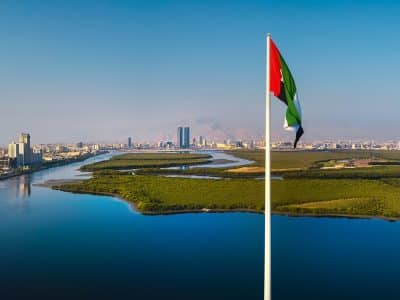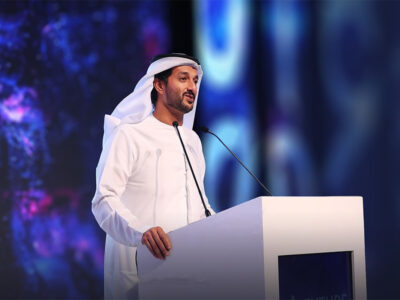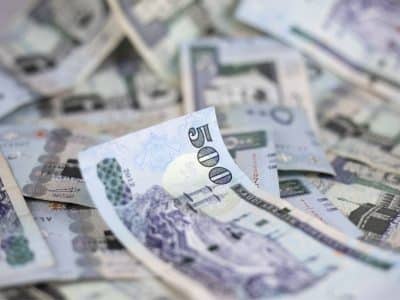Saudi Arabia’s Minister of Finance and acting Minister of Economy and Planning, Mohammed bin Abdullah Al-Jadaan, on Wednesday said spending on major projects would continue in 2021 despite a growing budget deficit.
He also expressed optimism that the pace of growth will accelerate in the kingdom with the demise of the pandemic, especially after the adoption of the vaccine.
Saudi Arabia on Tuesday announced a three-phase Covid-19 vaccination programme, as it began registering citizens and foreign residents after approving the Pfizer-BioNTech vaccine.
Saudi Arabia on Tuesday projected its 2020 budget deficit will soar to around $79 billion, as the world’s top crude exporter reels from low oil prices and a coronavirus-led economic downturn.
Saudi Arabia expects to post a deficit of SAR298bn ($79bn) this year, or 12 percent of GDP, but expects it to fall next year to SAR141bn ($37.6bn), or 4.9 percent of GDP, the finance ministry said in its budget statement.
 Minister of Finance Mohammed bin Abdullah Al-Jadaan says spending on major projects will continue despite rising budget deficit
Minister of Finance Mohammed bin Abdullah Al-Jadaan says spending on major projects will continue despite rising budget deficit
But Al-Jadaan said in comments published by Saudi Press Agency that the 2021 budget aims to continue spending on major projects.
He added that the kingdom would continue to support the private sector through the National Development Fund and the Public Investment Fund to provide more jobs for citizens, and encourage them to develop self-employment ideas to enhance their incomes.
Al-Jadaan indicated that 2020 was “exceptional”, adding that the government had dealt with it “professionally and harmoniously”.
He said that the government has taken “strict, swift and decisive decisions in harmony between government agencies to give priority to human health first”, referring to the impact of the coronavirus pandemic.
He said he expected that government expenditures will increase from the approved budget for 2020 to reach about SR1,068 billion, while the total expenditures are estimated SR990 billion in 2021.
The minister pointed out that spending on the municipal services sector is expected to increase by about 4.6 percent while education is expected to increase sector by 1.4 percent by the end of 2020 compared to the previous year. Spending on the military sector is expected to decrease by 5.9 percent for the same period.
Al-Jadaan emphasised that legislative reforms during the past years had enabled the government to absorb the shock and deal with the Covid-19 pandemic efficiently, adding that the kingdom enjoys a “strong financial position given the large size of its reserves with relatively low government debts”.
Al-Jadaan also said that the financial and economic initiatives taken within the kingdom’s Vision 2030 programs had contributed to reducing the effects of the pandemic on citizens and expatriates, and the local economy.
The International Monetary Fund (IMF) expects the kingdom’s economy to shrink by 5.4 percent this year.
Saudi Arabia has failed to balance its books since the oil price rout of 2014, prompting the petro-state to borrow heavily and draw from its reserves to plug the shortfall.








